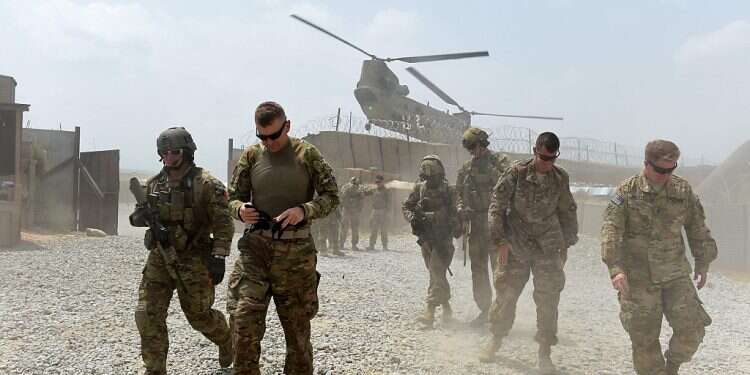Over the past 18 years, an armed insurgency has been waged in Afghanistan by the Taliban ("students" in Pashto) Muslim extremist organization and directed against coalition troops led by the US. Up until 4 am on Sunday morning. September 8, a breakthrough aimed at ending the conflict seemed to be within sight. Nine painstaking rounds of talks between the US and the Taliban over the past year appeared to be resulting in an agreement.
Any such development is now moribund.
Follow Israel Hayom on Facebook and Twitter
We are within days of marking the 18th anniversary of the worst-ever terrorist attack on the United States – the events of September 11, 2001. It was quickly established that responsibility for the onslaught lay with the al-Qaida movement, but the US was convinced that the Taliban was sheltering its mastermind, Osama bin Laden. As a result, on October 7, 2001, a US-led coalition invaded Afghanistan and America embarked on its longest war. It has claimed the lives of more than 4,000 American military and civilian personnel.
Despite the additional troops sent to Afghanistan from time to time, the Taliban actually gained ground. According to a December 2018 Congressional Research Service report, the "insurgents are now in control of or contesting more territory today than at any point since 2001."
Coming into office in January 2017, US President Donald Trump promised a quick win against the Taliban followed by the withdrawal of American troops. Later that year he changed tack, announcing an increase in troop levels to 14,000. What he did not disclose was that this was a first step in a strategy aimed at opening negotiations with the Taliban to try to reach a deal.
In December 2018, the Taliban announced that they would meet with American negotiators. On February 25, 2019, peace talks began, with the co-founder of the Taliban, Abdul Ghani Barada, at the table. They got off to a good start.
Agreement was reached on a draft peace deal involving the withdrawal of US and international troops from Afghanistan, matched by an undertaking by the Taliban to prohibit other jihadi groups operating within the country.
Deadlock soon followed. Among other stumbling blocks was the Taliban's refusal to negotiate with the Afghan government, which they regarded as a US puppet regime. But on September 2, 2019, Zalmay Khalilzad, head of the US negotiating team, revealed in a TV interview details of the long-awaited deal. The Taliban would guarantee that Afghanistan would never again be used as a base for militant groups seeking to attack the US and its allies, in exchange for the withdrawal of 5,400 of the 14,000 US troops. A pullout of the remaining forces would depend on conditions, including a ceasefire and the start of peace talks between the Afghan government and the Taliban.
US officials said they had received a commitment from the Taliban that it would respect the country's democratic constitution – one of the few tangible legacies of the allied intervention. But with the Taliban still engaged in military activity affecting Afghan civilians, public support for a deal is tempered by a great deal of skepticism. Many fear that it could see hard-won rights and freedoms eroded. The memory lingers of the strict religious laws imposed on the population and the brutal treatment of women when the Taliban ruled large areas from 1996 to 2001. Afghan President Ashraf Ghani, in common with much of Afghan public opinion, knows that It would be an unmitigated disaster for Afghanistan if the outcome of any peace agreement was a resumption of the Taliban's tyrannical rule.
So it came as a complete surprise, not to say shock, to learn from a tweet issued by Trump late on Saturday night (EST) that a secret meeting between the president and Taliban leaders, with Ghani also present, had been planned for this weekend, to take place at Camp David. Right throughout the formal peace discussions, the Taliban had maintained their armed insurgency, concluding that this policy had, if anything, strengthened their negotiating position.
They had clearly decided to pursue the same tactics with respect to the unprecedented invitation to the United States. On September 5 a suicide car bomb exploded in the Afghan capital, Kabul, killing at least 10 Afghan civilians and two soldiers, one of them a US paratrooper. The Taliban claimed responsibility.
This time, they miscalculated badly. On learning of the death of Sgt. 1st Class Elis Angel Barreto Ortiz, Trump canceled the meeting and called off peace talks entirely.
Justified as it is, this move smacks of Trump's "Art of the Deal" tactic – to maintain the initiative and keep the other side on tenterhooks. For Trump to achieve his aim of withdrawing from Afghanistan, negotiations will have to be resumed sooner or later.




